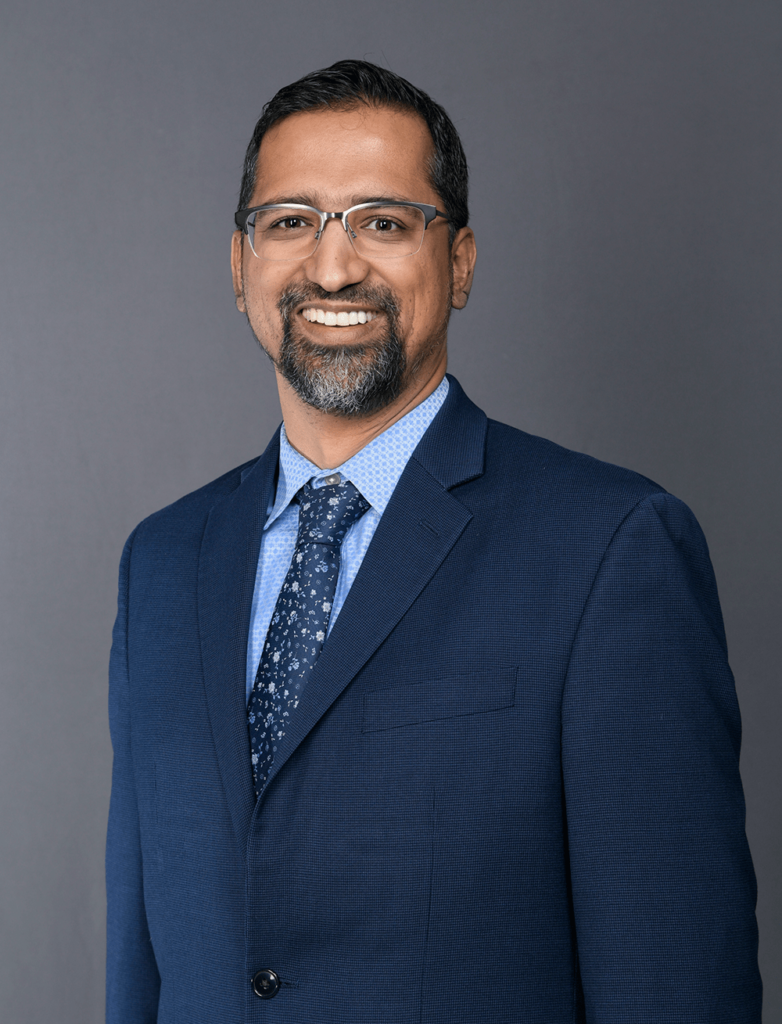February is American Heart Month, a time when the nation spotlights heart health because heart disease remains the leading cause of death in America. What can you do to be heart healthy? Dr. Umar Shakur, Insight Hospital and Medical Center’s resident expert in non-invasive cardiology, offers the following tips for optimizing your cardiovascular health.
The first thing you have to understand is that although heart disease is the leading cause of death in America, there are things you can do to reduce the likelihood of developing heart disease so you can live your best and healthiest life.
Several of the risk factors for heart disease are modifiable, meaning that you can reduce your risk by making important lifestyle changes. The American Heart Association has a program called Life’s Simple Seven that can help people live a heart healthy lifestyle. These simple steps include regular physical activity, eating a healthy diet, and not remaining sedentary.
Two of the most important things we can do to improve our heart health are getting enough regular physical activity and eating a plant-based diet. Try to eliminate red meat, soda, snacks, and unnecessary carbs from your diet. The carnivore diet, in which you eat only red meat, is growing in popularity on the internet, and while it might be effective for weight loss, it’s bad for your heart health because it raises your bad cholesterol.
Move. Move Move. It’s almost impossible to commit to a healthy lifestyle when you’re sedentary or spend most of your day sitting at a desk, so you have to make a conscious effort to buck the trend and move throughout the day.
To assess your own risk for heart disease, consider whether you have a family history of diabetes, high blood pressure, or high cholesterol, as family history increases your risk for developing heart disease. Smoking is another significant contributor to heart disease, irrespective of whether tobacco or marijuana is the substance of choice, along with drinking alcohol. Interestingly, many patients claim that they drink red wine for the purported health benefits. However, eating red grapes can offer the same health benefits and keep you on track for a healthy lifestyle, so they’re a much better choice.
Cardiologists are very aggressive at looking at things like your LDL cholesterol and treating that. There are many exciting new therapies coming out for management of cholesterol, including injections that are essentially twice a year, and are almost like taking a vaccine for cholesterol.
Physicians can help you achieve weight loss and a healthier lifestyle with medications and interventions, but small changes that are consistent go a long way. You only need to do a few minutes of regular exercise a day to see a difference. There’s a seven minute workout you can do without a gym membership or special equipment. It’s a seven minute HIIT (high intensity interval training) workout, and you can do it in the comfort of your home, and without purchasing expensive equipment.
A person in their mid-30s or older with a family history of heart issues should schedule an appointment with a cardiologist and start tracking their blood work and different scans and exams. Youth is a powerful medicine, and a 30 year old can get away with a lot when it comes to heart disease, diabetes, and high blood pressure. However, if they want to retain their mobility, independence, and activity levels when they’re older, they have to invest in their health now.
In a nutshell, making a few key lifestyle changes – getting regular exercise and moving throughout the day, eating a plant based diet, and avoiding alcohol, tobacco, marijuana, and processed foods – can start you on your way to becoming heart healthy. I wish you all great health and a long life.
If you have risk factors for heart disease, please make an appointment with one of our primary care physicians so that we can help you stay healthy. Call us at (312) 567-2273 or go to https://insightchicago.com/appointment.



Recent Comments